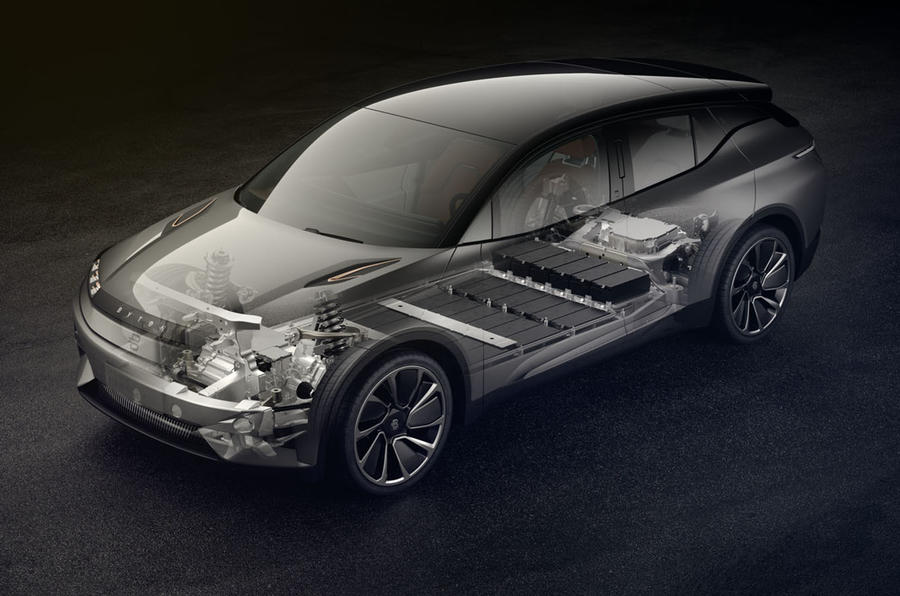Chinese electric car start-up Byton, run by ex-BMW I boss Carsten Breitfeld, has unveiled a concept version of its first model, an SUV with support for level four autonomous driving, at the Consumer Electronics Show in Las Vegas.
The Byton Concept is a premium full-electric SUV that the first describes as being “almost production ready.” The firm has cited a range of up to 323 miles for the Concept, which is due to enter production in 2019 and cost around £33,200 (US $45,000).
The Byton will be available in two powertrain configurations, with either a single 268bhp electric motor driving the rear axle that produces 295lb ft of torque, or a four-wheel-drive version with motors driving each axle. The two motors in the 4WD version combine for 469bhp and 524lb ft of torque.

Power will be stored in modular lithium ion batteries that form part of the vehicle chassis. While Byton hasn’t revealed the capacity of the batteries, it says the Concept will have a range of 248 miles/ 397 kilometres, increasing to 323 miles / 517 kilometres with an upgraded battery pack.
Insight: why demand from China is spurring growth of electric car sales
Byton says the Concept will feature driver assistance systems that will enable it to support level four autonomous driving, including cameras, ultrasonic sensors, radar and laser scanners. It has been designed so that components can be upgraded as technology develops. The vehicle architecture is designed for 5G mobile data connection, with speeds of up to 10 gigabytes a second.
The Byton Concept is 4850mm long, 1940mm wide and 1650mm high, and runs on 22inch wheels. At the front of the car, slim LED headlights top what Byton refers to as a ‘Smart Surface’.
Instead of door handles, the Concept features facial recognition cameras that check biometric data and will only unlock the door to authorised users.

The interior is dominated by a 1250mm by 250mm ‘Shared Experience Display’ that fills the dashboard. It is comprised of three panels, which can be customised. It is also used to show images from three rear-facing cameras: two take the place of the wing mirrors, with a third mounted in the car’s rear. The brightness and background colour of the display adjust automatically to suit lighting conditions.
The Shard Experience Display features gesture and voice control, or can be operated by a smartphone app. There are two displays for passengers in the rear, with the same control methods.
The main driver information, including navigation systems, is displayed in a touch-controlled 8-inch Driver Tablet integrated into the steering wheel. The edges of the display feature buttons for the drive selectors, indicators and infotainment volume.

Each seat features a facial recognition camera that will identify the user and allow personalised settings to be transferred to any seat. The front seats can swivel by 12 degrees. The SUV is due to go into production in 2019, and Byton president Daniel Kirchert has said that a saloon car and MPV, based on the same platform, will follow soon after.
